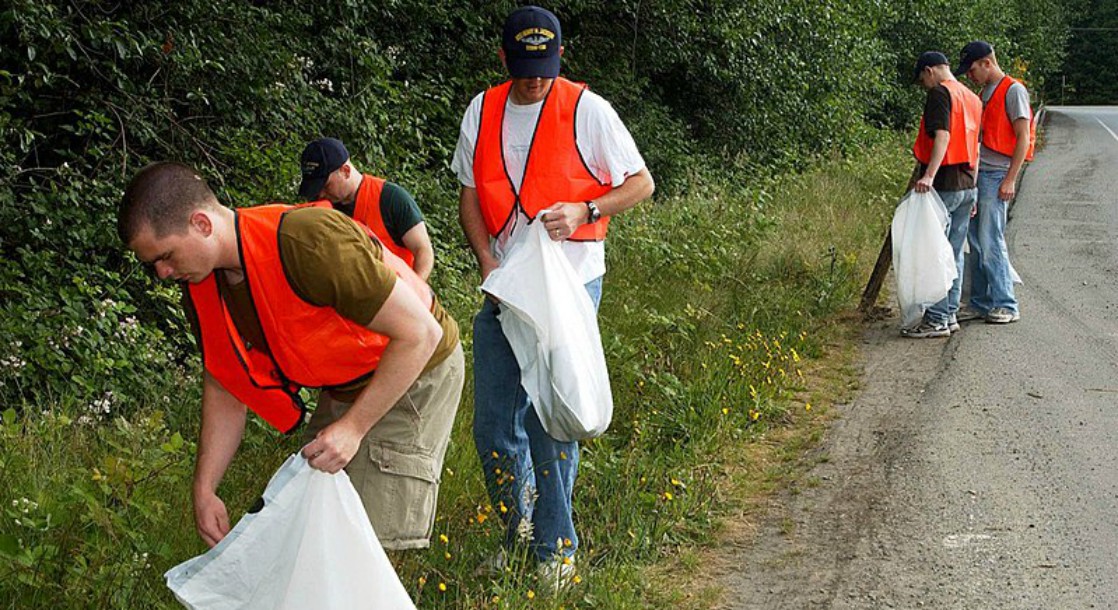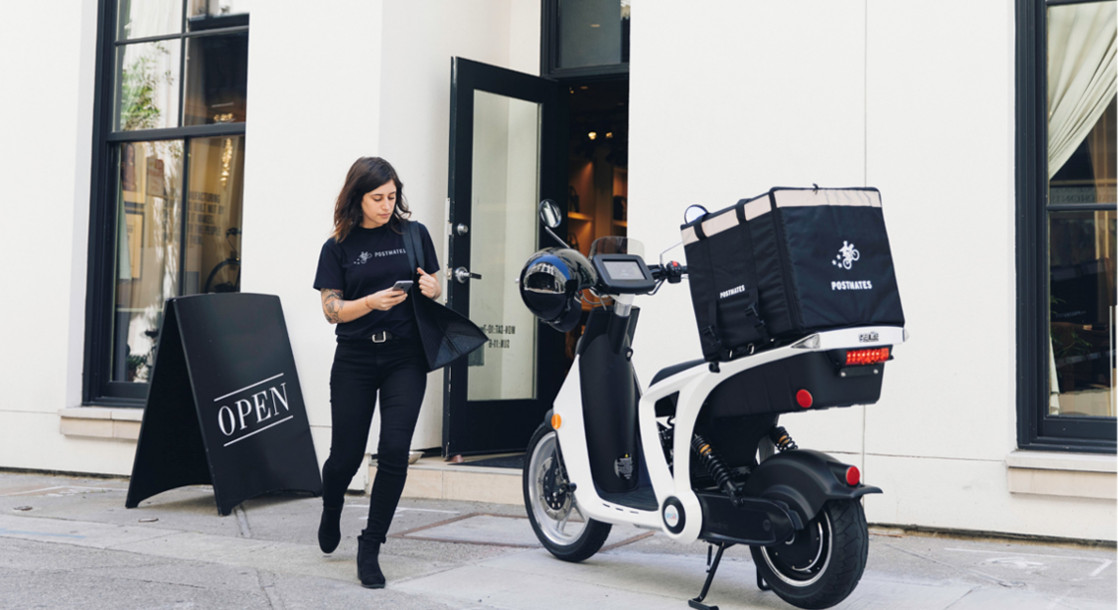Lead illustration by Stephen Maurice Graham
“Can I see your ID?”
It’s 4/20 and I’m out on a delivery with High Speed, Washington D.C.’s premier fresh-pressed juice and cannabis company.
“I’m gonna need to see your license if you could grab it, please.”
The middle-aged man who just walked out of a yoga studio to pick up his holiday goods looks perplexed, but Raheem, the delivery driver I’m riding with, insists. According to the District’s recreational cannabis laws, only those 21 years and older can legally receive a gift of cannabis, so it’s not until after the man walks back inside and returns with his driver's license that we can give him the $55 bottled apple-cucumber juice he paid for online, and the free bag of weed that comes with it. This is what canna-business looks like in DC.
Washington D.C. is not a state. That may seem like common sense for anyone who’s passed grade school geography, but it’s important to remember when diving into the District’s cannabis community. While voters in Colorado, Oregon, and the like were able to pass legal weed legislation and jump right into a regulated market, D.C. is instead subject to the will of Congress’s federal budget — and the counterproductive, city-specific riders that come with it.
Since D.C. voters passed Initiative 71 to legalize adult use, possession, and the personal cultivation of cannabis in 2014, Congress has passed budget add-ons, or “riders,” each year to block the District from spending money to craft retail cannabis regulations or “enact any law, rule, or regulation to legalize or otherwise reduce penalties associated with the possession, use, or distribution of any Schedule I substance under the Controlled Substances Act.”
Without retail stores, D.C. residents and tourists are forced to grow their own cannabis, rely on the kindness of others, or find one of Washington’s “gift economy” providers — companies willing to serve marijuana as a gift in exchange for donations, delivery, and packaging fees, or alongside legally taxed (although highly-priced) non-cannabis items. This is exactly the legal grey area in which High Speed does business.
In Massachusetts and Maine, gift economies have sprung up while state lawmakers bicker over regulations and retail start dates. In fully regulated states like Oregon and Colorado, the same structure can be found on Craigslist, where unlicensed dealers push buds for donation as a way to skirt local laws. In the District of Columbia, though, the gift economy has become an industry. By crafting businesses around the rules of Initiative 71, D.C. cannabis companies have been able to forego the expensive regulatory roadblocks found in other states, while testing the boundaries of local law enforcement and their own ability to adapt. So as venture capitalists and big tobacco make their way into the West Coast’s exploding cannabis industry, independent entrepreneurs willing to risk a little and gain a lot are making a name for themselves in D.C.. But with a Republican-controlled federal government willing to upend popular policies right at their doorstep and no change in sight for D.C.’s local regulations, will these companies be locked up, forced out, and made to pursue the cannabis green rush in a state with full regulations, or will they be able to keep thriving in Washington’s legally-grey loophole?
Enter Nicholas Cunningham, one of D.C.’s most seasoned gift economy vets. In 2015 Cunningham decided that Initiative 71, and the loophole it opened, were ripe for the taking. He had saved up money working in L.A.’s medical marijuana industry, and without the pricey regulatory costs found in established markets, the then 31-year-old entrepreneur jumped into the East Coast’s green rush head first.
“When the laws changed in D.C., it was pretty much perfect for the way I wanted to do things and the position I was in,” Cunningham told MERRY JANE by phone. “It was just me on my own, no investors, just doing all I could. I wasn’t in the position to pay for licensing and do the things that California required.”
So Cunningham ditched his life in the Southland, drove east, and started Kush Gods, a donation-based cannabis company putting their brand (and bud) front and center. With a fleet of vinyl-wrapped luxury vehicles emblazoned with the Kush Gods logo and imagery of dank nugs, Cunningham and his team started driving around the city, offering infused edibles in exchange for donations. On any given Friday night in the summer of 2016, it was common to see the Kush Gods’ Mercedes parked on U Street — the main drag uniting several of Northwest D.C.’s hippest neighborhoods — hawking magic brownies in exchange for a $10 donation on the spot.
But while Cunningham was under the impression that asking for donations instead of payment would protect him from the law, D.C.’s Metro Police Department didn’t want to talk semantics. Cunningham was caught in a sting operation and charged with two counts of selling marijuana. After months of running through legal hoops, Cunningham plead out and was given two years’ probation under the condition that he recuse himself from further cannabis-related business.
"Will these companies be locked up, forced out, and made to pursue the cannabis green rush in a state with full regulations, or will they be able to keep thriving in Washington’s legally-grey loophole?"
Despite the arrest, Cunningham was still under the impression that he was following the law of the land; he even walked out of court and told news cameras that the Kush Gods would be back in business the next day. And they were, under a new model that has cannabis recipients sign a form unequivocally stating that they are making a donation to the Kush Gods and not purchasing anything.
Yet thanks to the Kush Gods’ loud street presence and Cunningham’s openness with the media, a judge revoked his probation, and the man behind Kush Gods began 2017 by serving 60 days in jail. If you ask Cunningham, it was all a play to get his attention-grabbing cars off the street and make an example out of him.
“There was nobody branding donation-based cannabis in D.C. before us, but since then it’s blown up,” Cunningham said. “I think when the police did what they did to me, they thought that people would be too afraid to try it themselves — but I think it motivated more people to start their own gift economy businesses.”

David Umeh is one of those motivated businessmen. The 26-year-old Oakland, CA native started High Speed Delivery after returning home from a three-year-stint at Virginia’s Hampton University. The company began as a medical marijuana courier for dispensaries in the Bay Area, but David soon found out that deep-pocketed delivery heavyweights like Eaze had the region locked down.
“Competition drives innovation, but I still wanted more,” Umeh told MERRY JANE by phone. “Washington D.C. caught my eye because, first of all, how the legal framework is set up; second, because we were in an election year; and third, it just really tickled my fancy that they would make those laws in the nation’s capital.”
High Speed launched in the District in January 2016, and the company immediately parlayed itself into D.C.’s cannabis community, while also capitalizing on the nation’s widespread fresh-pressed juice trend. Umeh and his team crafted a website where gifts of cannabis — or “Love,” as High Speed calls it — can be added to juice orders. And while gift weights aren’t specified online, juices with added “Love” translates to about an eighth of flower, while juices with “Lots of Love” come with decidedly larger gifts.
All payments are made online so there’s no cash transaction at the delivery drop off, and the slick, branded bags that conceal the cannabis gift make High Speed feel like just another app-based delivery company — a GrubHub or Seamless, but with a much smaller menu. The company sends out a weekly newsletter with strain selections, info about local community events and an inspirational quote like, “Nothing will bring you peace, you must bring yourself to it.” It’s not hard to tell that David’s Bay Area influences stretch down to Silicon Valley.
So while the Kush Gods have no qualms with putting cannabis front and center, High Speed takes a more low-key approach, putting the juices on display and letting the cannabis play the background. Like Cunningham and Kush Gods though, it didn’t take long for the media to latch onto High Speed’s unique form of branding. It didn’t hurt that Umeh was more than willing to talk.
“I think when the police did what they did to me, they thought that people would be too afraid to try it themselves — but I think it motivated more people to start their own gift economy businesses.”
After the press caught on last April, High Speed saw an immediate flood of business. With the increased volume came issues with local juice suppliers who were either unable to keep up supply or upset about the cannabis-related promotions; sometimes both. So once again, Umeh adjusted.
He’s since started Capital Juice, a sister brand to High Speed that offers custom juices inspired by D.C.’s neighborhoods. They have flavors like Berry Farms, Strawberry Shaw, and The Uptown — a tart cucumber, lemon, and apple mixture that, if you’re to believe me, is just as good if not better than any $8 bottle you’ll find at Whole Foods. In addition to the High Speed menu, you can find Capital Juice in the refrigerated aisle of three District bodegas that have no ties to the cannabis community.

Since Cunningham’s arrest, the Kush Gods have also gone online. They’ve taken the cars off city streets, and cannabis products are now posted on social media alongside a phone line that lets prospective benefactors know where they can meet up to donate. The Kush Gods set a meet-up location every day where people 21 and older can sign the donation paperwork, and are then sent to a nearby restaurant or shop where they can choose between various cannabis gifts. It may not be a California dispensary, but that hasn’t stopped D.C. residents and tourists alike from seeking out the day’s pick up spot.
While D.C.’s unregulated form of legalization means that breaking the rules can land you in jail, cannabis is still legal in the District, and the result of the Kush Gods’ case has been more like a regulatory fine than a death sentence for the company. Cunningham’s arrest pushed the limits of Initiative 71, but it’s also allowed him, and a handful of newer gift economy businesses like High Speed, to figure out how they can comply with local legislation.
Without the eye-popping cars on the streets, cops have left the Kush Gods alone, so far. As for High Speed, along with Dreamy (which sells motivational speeches with a gift of cannabis), Red Eye (similar to High Speed, but with cookies instead of juice), and the Capital’s other web-based, gift-economy cannabis businesses, the same idiom has rang true: Out of sight, out of the police’s mind.
As Dreamy’s founder Ryan Ha told me during a chance meeting at a D.C. bar, “If Colorado represents America’s low-risk, low-profit cannabis center thanks to floods of competition and high barriers to entry, and New York City is the country’s high-risk, high-profit hot spot, where weed still sells for a premium but total criminalization makes public branding impossible, Washington D.C. is the middle ground, where low-risk meets high-profits.” That middle ground makes the grey area endlessly appealing.

“If Colorado represents America’s low-risk, low-profit cannabis center thanks to floods of competition and high barriers to entry, and New York City is the country’s high-risk, high-profit hot spot, where weed still sells for a premium but total criminalization makes public branding impossible, Washington D.C. is the middle ground, where low-risk meets high-profits.”
By the time I met with Umeh and the High Speed team on the morning of 4/20, business was already in full swing. The first stop was Capital Juice. After winding through mid-morning government traffic while debating the high points of Kendrick Lamar’s DAMN., we arrived at a warehouse full of produce. Umeh told me that the ten or so cases of Capital Juice tucked near the door were the butt of the past two weeks’ production. “It started as a whole pallet, sky high,” he said through a grin.
After checking out the juice facility, I hopped in the car with Raheem, one of High Speed’s delivery drivers, and we were off to deliver juice and give out heady gifts. While that might sound like a blast, it ended up being more like what I imagine following a pizza guy is like. Each driver has a case of juice and sixteen gifts — totaling two ounces, or exactly the amount of cannabis an adult is legally allowed to carry in the District. The 40 year-old yogi running upstairs for his I.D. was the most exciting encounter of the day. Other than that, it was mostly bad traffic and happy customers.
California’s weed farms weren’t sown the day after legislation went into effect, and drug stores sold “medicinal whiskey” as a toothache remedy during Prohibition. In other words, exploiting legal loopholes to achieve financial success is nothing new and it’s not always exciting; just ask D.C.’s most high-profile resident, Donald Trump.
With conflicting state and federal laws across the country putting America’s entire cannabis industry into legally unknown territory, tensions have only grown higher since Trump moved to town. In D.C., two years of uncertainty and adaptation have prepared gift economy cannabis businesses for the Trump administration’s potential reefer madness methodology.
“I think it’s apparent that there’s going to be an increased level of pressure,” Umeh of High Speed says about the Trump administration’s presence. “But really, what did we sign ourselves up for? If I’m not ready for a new regime to come in and have their mixed feelings, I shouldn’t have signed up for this in the beginning.”
Locally though, police say they are aware of the gift economy providers, but they’ve largely abstained from intervening. Still, that doesn’t mean that the gift economy will last forever. MERRY JANE’s legal expert, a licensed lawyer who goes by Cannabiz Confidante to protect her identity, says that the gift economy providers could be in trouble if further challenged in court.
“The donation/gift loophole in DC is ripe for a legal challenge — essentially by arguing that any transfer is not a true gift because something of value was given in exchange,” she wrote in an email. “I believe it would be hard to legally justify a mark-up on a non-marijuana item when it's known that marijuana was given ostensibly as a ‘free gift’ along with that item.”
In a recent interview with the Washington Post, Lt. Andrew Struhar from D.C. Metro’s narcotics squad issued a similar sentiment, and suggested that business could be shut down on a case-by-case basis going forward. “Investigators are aware of the services, and when they deem them illegal, they shut them down.” For now though, it’s still not exactly clear where that legal line lies.
"What did we sign ourselves up for? If I’m not ready for a new regime to come in and have their mixed feelings, I shouldn’t have signed up for this in the beginning.”
With their successes in the District’s legal grey area though, both Cunningham and Umeh have plans for expansion. At the tail end of 2016, Umeh saw Massachusetts’ newly minted legalization as a prime opportunity to grow the High Speed brand, and took his show on the road, setting up shop in Boston while Bay State regulators quarrel over official retail cannabis start dates. He says business is starting strong in Beantown, with a city-specific line of Capital Juices on the way and a preliminary eye on opportunities to turn High Speed into a fully taxed and regulated part of the local cannabis industry.
For Cunningham, impending legalization in Ohio has raised interest, but the main focus remains and will continue to be the District of Columbia and the seemingly never-ending legal purgatory that is the D.C. grey area cannabis market. “It’s been a gift and a curse,” Cunningham said. “It’s taken a toll on my family, but it’s got its perks too. I wouldn’t change it.”
As more states push to legalize cannabis in the coming years, delayed regulations will no doubt create similar gift economies around the country as a new set of risk-taking entrepreneurs try and stake out their own corner of America’s multi-billion dollar cannabis industry.
In Washington D.C., the gift economy businesses have become the city’s most active cannabis providers, and unless a large-scale crackdown occurs, or by some miracle Congress rescinds their moratorium on regulated retail shops, companies like the Kush Gods and High Speed see no need to change their business model. If anything, they will continue to serve the growing market and push the limits of the country’s burgeoning legal weed landscape.
“We’ll be in D.C. until they completely shut everything down,” Cunningham said of the Kush Gods’ future. “We’re sticking around.”
Follow Zach Harris on Twitter
Visit Stephen Maurice Graham's website for more of his art and illustration work.











